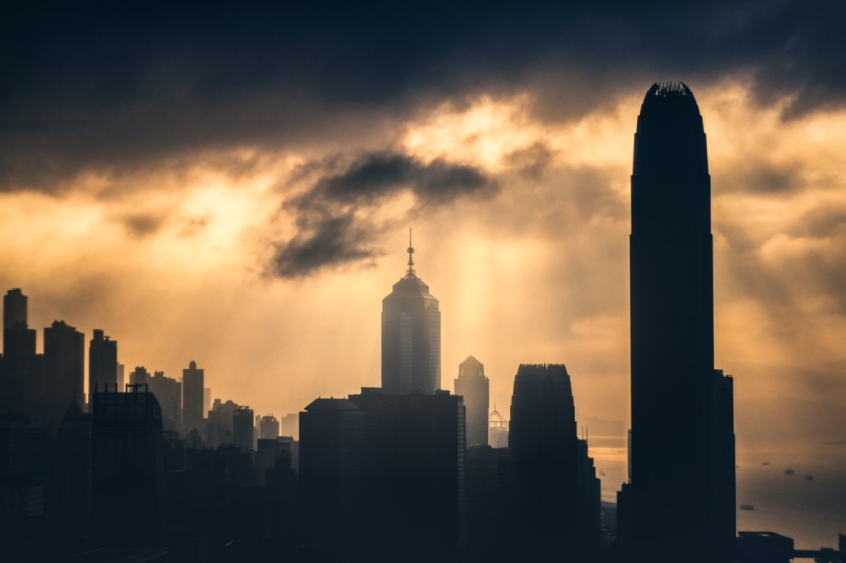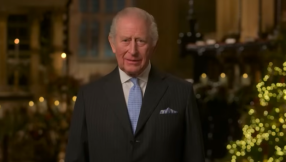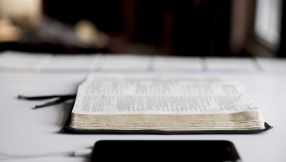
It's a sunny May morning and I am thinking about the end of the world. Like you do. A number of things combined to put me in this frame of mind.
Two weeks ago I delivered my latest book to a publisher, exploring Christian ideas about the End Times over two thousand years. As a recurring theme in the history of the church since the closing of the canon of the New Testament, it has been something of a rollercoaster of confident predictions, followed by recalculations.
Not for nothing was the huge excitement that gripped thousands in the USA in the 1840s eventually described as "the Great Disappointment." However, this did not prevent many followers of the movement that had led to this debacle in 1844 from readjusting and recalibrating – and getting it wrong again.
This was consistent with the track record of sincere believers over centuries, who have misidentified the Vikings, the Magyars, the Saracens, rival popes and Holy Roman Emperors, the Black Death, the Puritan settlement of New England, the French Revolution, etc, as indisputable signs of the End Times.
Now, I must state at this point, as a Bible-believing evangelical Christian, I believe in the visible return of Christ and the remaking of the whole cosmic order that will follow. We should be ready for it at any time. I believe that the whole arc of history bends towards that future point.
But the track record of huge amounts of time and effort going into erroneous calculations and speculations gives one food for thought. So much time. So much effort. A fair amount of violence too, among those who took a muscular approach towards (as they saw it) hastening its coming. The history of End Times speculation has been as violent as it has been chequered. Just ask the Jews of the Rhineland at the time of the Crusades, or the citizens of Münster in Westphalia in 1534, what radical millenarian enthusiasm can lead to.
I am of the generation who remembers the confident assertions of the 1970s that the end would occur a generation on from the establishment of the State of Israel in 1948. That placed it in the mid-1990s at the latest. This would accompany the growth of the EEC/EU to ten nations in fulfilment of prophecies in Daniel and Revelation. That certainly focused the mind of an impressionable teenager. But the date and the enlargement came and went. Readjust. Recalibrate.
This process came shockingly up to date as I was completing the book. I listened to a commentator in the USA confidently assert that Vice-President Kamala Harris might be the 'Whore of Babylon' (careful how you Google that one!). And that Barack Obama fits the description of the Antichrist more than anyone else he has ever seen. Now, you don't have to be an enthusiastic US Democrat to question the strength of the biblical exegesis leading to these identifications. The 'End Times' are very much 'Now Times' across wide areas of the Christian community. And the identifications often reveal as much about externalizing existing ideologies and prejudices as they do about the fulfilment of prophecy.
Signs of the times?
There has been a resurgence in End Times speculation since the year 2000. And now, at a time of pandemic, there have been many Christians who have seen it as a clear sign of events leading to the Second Coming.
In the run-up to Christmas 2020, the senior pastor of a church in California declared that the global impact of the pandemic created the ideal situation for the appearance of the Antichrist, global government and the persecution of all who will oppose Antichrist. In line with such an outlook, the church in question was one of a number of similar faith communities in the US which opposed Covid-19 lockdown restrictions.
Such state and federal restrictions are frequently seen as infringements of religious liberty; and indicative of the kind of state power that will be utilized by Antichrist. It was not an isolated case in the US and, no doubt, there are echoes of it elsewhere. I have heard more muted versions expressed in the UK. From such a viewpoint, mask wearing, vaccination and social distancing can rapidly be framed, not as responsible and caring, but as submissive and collaborationist. Some versions of End Times theology can cost lives.
The same kind of rapid recourse to End Times identifications at a time of crisis lies behind a significant amount of climate change scepticism, when found today in a Christian context. After all, why worry about climate change if the Second Coming is imminent? Indeed, human agency in this area may be questioned if the crisis is seen as an inevitable consequence of the progress of history towards the parousia. Some versions of End Times theology can cost the planet.
The same arguments were rolled out in the 1980s to challenge nuclear disarmament; and were often associated with references to biblical verses which were interpreted as reminiscent of a nuclear Armageddon. End Times preoccupation, when approached from this angle, can become a reason for disengagement (even passivity) and denial regarding the pressing issues of society and the world. It can seem unengaged with the social and environmental crises around us. This is certainly not an inevitable consequence of the belief – just its frequently occurring present manifestation. But there is an answer to this.
The challenge of the Ascension
May 13th was Ascension Day. The account of this dramatic event in the Acts of the Apostles, includes the disciples asking if now was the time when Jesus would "restore the kingdom to Israel?" They are expectant that apocalyptic events are about to unfold. His reply is telling and Christians would do well to take it to heart: "It is not for you to know the times or periods that the Father has set by his own authority."
Instead of speculation, they are specifically instructed to wait to "receive power when the Holy Spirit has come upon you; and you will be my witnesses in Jerusalem, in all Judea and Samaria, and to the ends of the earth." (Acts 1: 6–8 NRSV) In other words, leave that to God; you are being empowered to do the work that God has assigned to you.
"Let lights be brought"
So, in an age of pandemic, how should we approach this complex theme? There is a story told – which may be apocryphal – that, in the seventeenth century, a very dark day caused the members of a New England assembly to think that the end of the world was imminent. Some members of that assembly thought that they should end the session, go home and await events in prayer. At last the speaker made his ruling. According to the story, it went something like this: "This is either the end of the world or it is not. If it is not the end of the world, we have business to attend to. If it is the end of the world, then I want Christ to find us attending to our duties. My ruling is this: let lights be brought."
That is a challenging thought: to believe in the Second Coming of Jesus but to still be fully engaged with life's responsibilities. To believe in the End Times but put more energy into mission and social transformation than into apocalyptic speculation, identifications and timetabling.
We would do well to remember the advice of that legendary New England speaker. He faced the assumption that the Second Coming was imminent and he decided on engagement with the pressing tasks of the day.
"Let lights be brought."
PS. Then I saw this, on a Facebook post, this month.
Imagine if our Christian view of the End Times was:
Centered on preparing for Christ, rather than an antichrist.
Centered on the mark of the lamb, rather than the beast.
Centered on preparing for redeeming the earth, rather than escaping it.
Centered on hope, rather than fear.
[If you wrote this, I would be happy to attribute it.]
Martyn Whittock is an evangelical and a Licensed Lay Minister in the Church of England. As an historian and author, or co-author, of fifty-two books, his work covers a wide range of historical and theological themes. In addition, as a commentator and columnist, he has written for a number of print and online news platforms; has been interviewed on radio shows exploring the interaction of faith and politics; and appeared on Sky News discussing political events in the USA.













